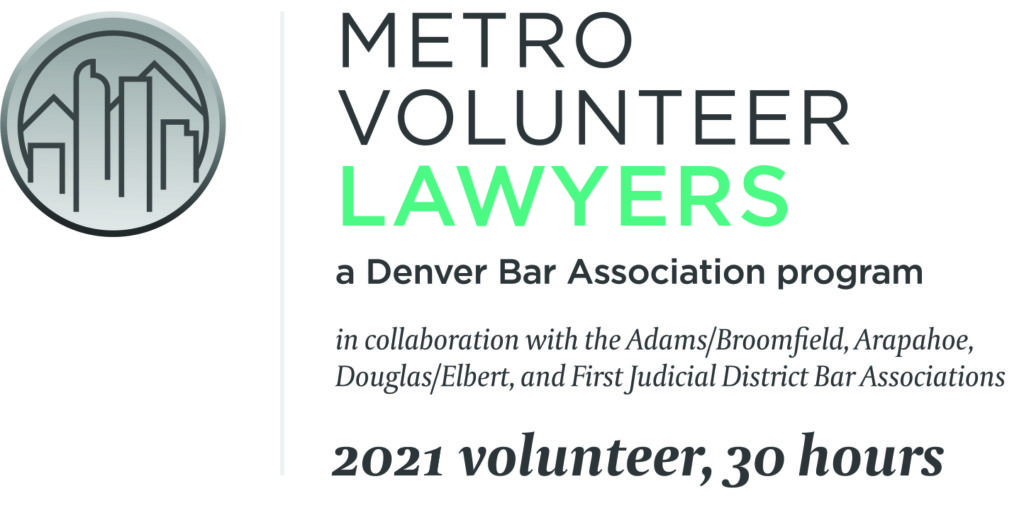
If your spouse has asked for a divorce, their request is probably one of the greatest shocks of your life. Sometimes people reach a mutual agreement to divorce, but not always. If your spouse wants a divorce, and you are not ready to give up on the marriage, you may feel out of control and that your whole world has shattered.
You may think your spouse does not really mean it, but as Maya Angelou once said, “When people show you who they are, believe them the first time.” Even if you are hurt and furious, it is best to stay calm and avoid rash actions, such as begging, threatening, clinging, or acts of spite. However, while you are processing your grief, a knowledgeable lawyer can explain your options, protect your rights and guide you through the legal process according to Colorado divorce law.
Colorado Divorce Law
Most people believe they will never experience a divorce, but a great many people do. The U.S. has the sixth-highest divorce rate in the world. According to 2020 statistics, there were 2.9 divorces per one thousand people in Colorado. The divorce rates go up for subsequent marriages.
Within Colorado divorce law, you may see the term “Dissolution of Marriage” (DOM), which refers to divorce. Colorado is a “no-fault” divorce state. That means if one spouse files a petition for divorce, the court will grant the divorce unless an agreement is filed by both spouses to dismiss the case. The court requires proof that the marriage is irretrievably broken, but it only takes the testimony of one spouse to establish that proof. The petitioning spouse does not need to allege adultery or domestic violence. The court will not force an unwilling spouse to remain in a marriage. Therefore, although there are two people in the marriage, it only takes one to end it.
Can You Avoid Divorce?
In Colorado divorce law, a divorce case begins when one spouse (the plaintiff) files a petition for divorce and serves it on the other spouse (the defendant.) In theory, avoiding service of process could prevent the divorce, but even if you manage to avoid being personally served, your spouse can sometimes serve you by publication, such as publishing a notice in the newspaper. Also, there are specific basic requirements for a divorce. For example, either spouse must live in Colorado for at least 90 days before filing a petition for divorce. If the parties are legally separated, they must wait six months before proceeding with a divorce.
Once the plaintiff has served the divorce papers on the defendant, the divorce will proceed through the court system unless one of the following issues exists. These circumstances may require the court to postpone the case or evaluate the situation.
- The court has no jurisdiction over the case or the person.
- Two different states have jurisdiction over the case.
- One spouse is unable to defend themselves.
Don’t Ignore the Divorce Petition
You may hope that you can save your marriage. However, the court will not order a reconciliation. Ignoring or failing to respond to the petition for divorce puts you at a disadvantage. The divorce will proceed by default, and the judge may decide matters such as alimony and child support without your influence. If you and your spouse do not reach an agreement on the terms of the divorce, it means the divorce becomes contested, and there will be one or more hearings so that the judge can decide the terms of the divorce. Refusing to sign divorce papers will not prevent a final divorce decree.
Some couples seek a court order for marriage counseling. Court-ordered counseling is rare, but couples may seek counseling on their own. Colorado has a waiting period of 91 days from the time of filing before the divorce can be finalized. However, many couples may take longer because there are many complicated, emotionally charged issues, such as child custody, child support, spousal support, and property division. The court may order mediation during this waiting period, to attempt to resolve some of these issues. How long your divorce takes depends on the unique circumstances surrounding your case.
What Can You Do To Protect Yourself and Your Children?
If your spouse wants a divorce, you should take steps to protect yourself and your children. You may not want the divorce, but you can protect yourself by being an active participant. For example, begin by:
- Consult a skilled divorce attorney.
- Think carefully about your life, including your children, career, living situation, and special goals and needs. This is a good time to examine your future plans.
- Learn all you can about your family finances, such as assets, debts, and businesses. Make copies of all documents and put the copies in a safe place.
- Keep a close eye on your credit. Note any unusual charges.
- Do not post derogatory photos or comments on social media. Such information is easy to find and may be used against you.
- Do not use your children as an emotional sounding board. In particular, do not speak badly of your spouse to your children.
- Do not allow your spouse to intimidate you with threats such as cutting off your access to your children or financial risk.
- If you have difficulty communicating with your spouse, try using author Bill Eddy’s BIFF communication method in emails or texts. BIFF stands for Brief, Informative, Friendly, and Firm.
Your Attorney Can Help You Understand Colorado Divorce Law
Divorce is traumatic, and you may find yourself grieving the life you had planned. No matter where you are in the grief process (denial, anger, bargaining, depression, and acceptance,) a spouse who is seeking a divorce is probably more ready to accept the dissolution of the marriage. If your spouse is seeking a divorce, you may feel betrayed, frightened, and alone, but help is available. Even if you are in counseling or working to save your marriage, it is essential that you understand your rights and responsibilities in the divorce process. Your lawyer can guide you through each step of the process. If you are facing a divorce proceeding, contact the experienced, compassionate Aschenberg Law Group at 720-259-8400 or set up a complimentary consultation online.





